1. The Simpsons – “Future Trump”
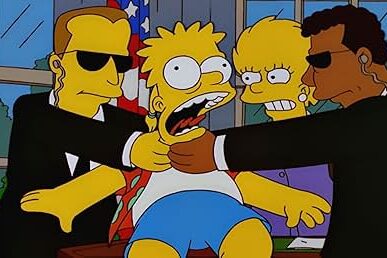
In a 2000 episode titled Bart to the Future, The Simpsons imagined Donald Trump as president; long before it happened. The punchline? Lisa Simpson inherits a budget crisis blamed on Trump’s disastrous term. Writer Dan Greaney confessed it was meant “as a warning to America,” a logical “last stop before hitting bottom”. Journalists later called it eerie, but Greaney insisted it reflected the show’s embrace of “the over‑the‑top side of American culture”. The episode resurfaced in 2024, when fans joked Lisa’s purple suit resembled Kamala Harris’s inauguration outfit.
2. Star Trek – “Future Tech & Diversity”

Decades before smartphones and video calls, Star Trek featured handheld communicators and live face‑to‑face links; concepts eerily ahead of their time. The original series also showcased one of TV’s first diverse bridge crews, foreshadowing today’s demands for representation. While no single article quotes an expert, numerous design historians point to Star Trek as inspiration for future innovations; and a blueprint for inclusive storytelling.
3. Black Mirror – “Social Credit Nightmare”

The Black Mirror episode “Nosedive” from Season 3 features a society where daily interactions are rated on a five-star scale. This rating system significantly impacts access to housing, jobs, even flights. The episode showcases a world where people’s socioeconomic status is determined by their online rankings, highlighting the obsession with personal branding and self-presentation. It eerily parallels China’s modern social credit system, and ride‑share and social‑media ratings. Critics say it’s “a scary reality check” on how algorithmic approval can warp lives. This hit close to home: much of Nosedive’s world is now cleaved onto our everyday experiences.
4. All in the Family – “Tackling Taboo Issues”
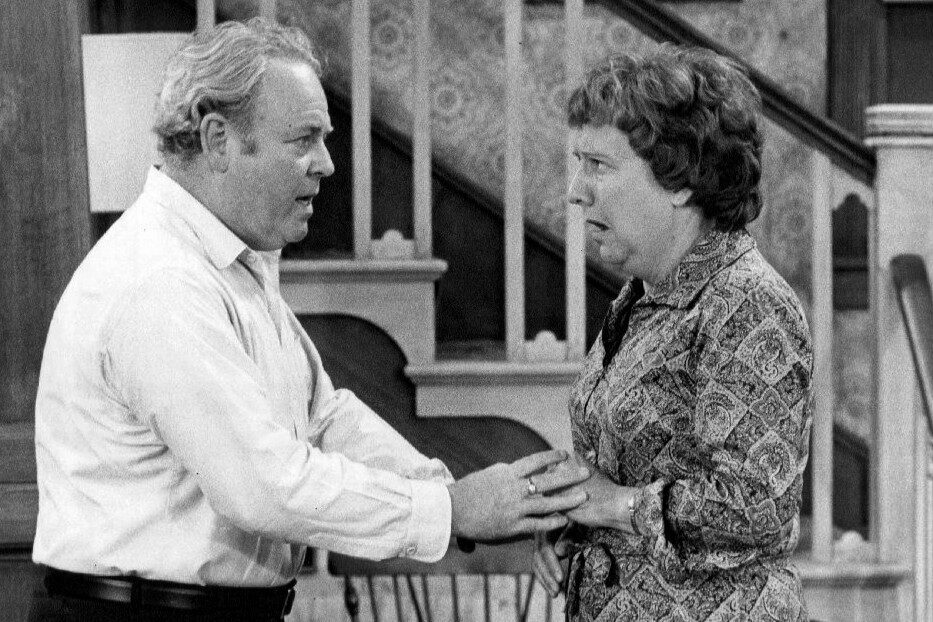
Long before TV became socially conscious, All in the Family (1971–79) fearlessly confronted sexism, racism, women’s rights, and gun control. Archie Bunker’s gruff conservatism sparked debates that still reverberate today. Whether addressing workplace inequality or violent crime, the show reflected and shaped cultural fault lines; echoing modern disputes over gender norms, systemic bias, and the Second Amendment. Though predating our current era, the show’s unapologetic tone makes it feel prophetic.
5. Murphy Brown – “Single Mom Showdown”
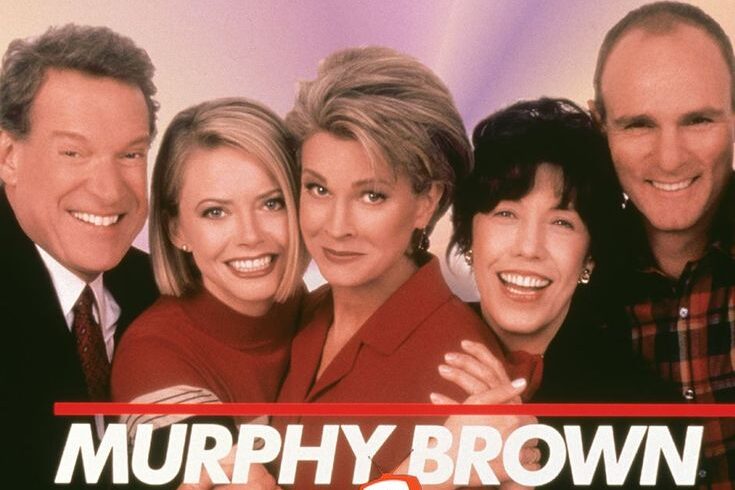
In 1992, Murphy Brown sparked controversy when its title character, a successful news journalist, chose to raise her baby alone. Then–Vice President Dan Quayle publicly criticized the storyline as mocking “the importance of fathers” and said it undermined family values. Candice Bergen, who played Murphy, later admitted the backlash even scared her; she was “afraid to go out” amid the criticism. The show responded by weaving Quayle’s real comments into its narrative and championing modern families. In hindsight, this showdown foreshadowed the culture wars around women, family roles, and reproductive rights that have only intensified in recent decades.
6. The X‑Files – “Conspiracies, Pandemics & Surveillance”
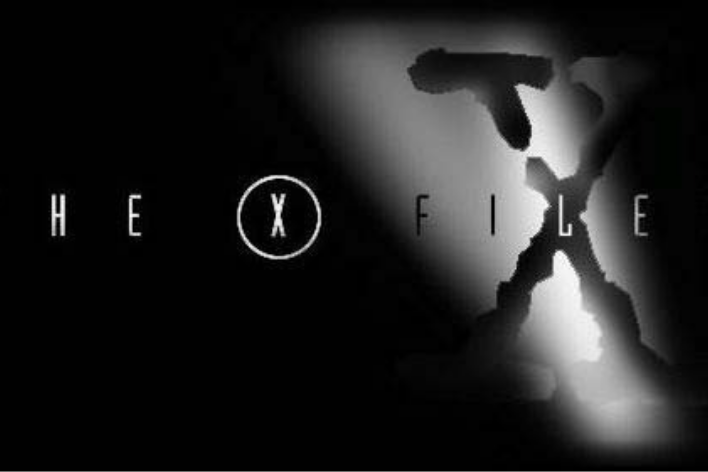
The X‑Files tapped into government paranoia in the ‘90s with secret bio‑weapons, hidden agencies, and unexplained epidemics. The revived Series 11 even leans into modern fears; mutating viruses, digital consciousness, and elite tech enclaves; that echo today’s anxiety around pandemics and surveillance drones. A YouTube recap of “My Struggle, Part 2” notes how the show channels current pandemic vibes. By framing shadowy conspiracies as central threats, The X‑Files foresaw the mainstreaming of conspiracy theories, distrust in institutions, and fear of biological threats.
7. The West Wing – “Idealism vs. Real‑World Policy”
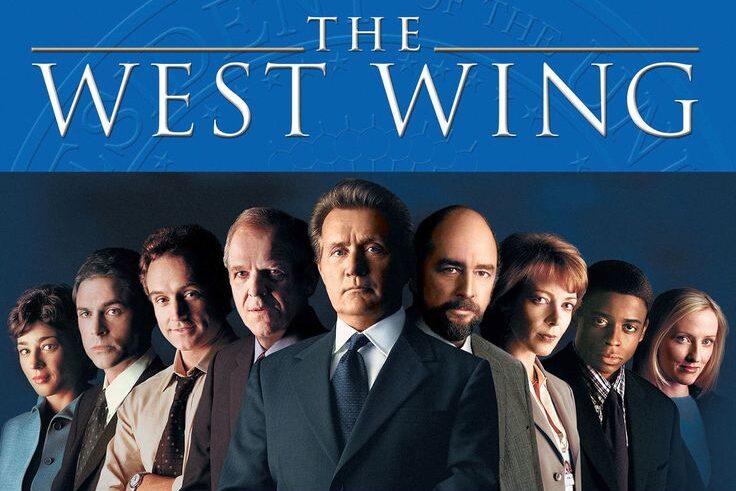
Although not a direct prediction, The West Wing shaped public expectations of government: bipartisanship, reasoned debate, and moral leadership. It dramatized conflicts over terrorism, healthcare reform, and diplomacy; issues that later hit headlines in the early 2000s with the Patriot Act, Medicare debates, and post‑9/11 crisis management. The show’s portrayal of earnest, hard-working staffers inspired many real-world political aides and voters to hope for a functional, values-driven executive branch, long before similar themes took center stage in U.S. politics.
8. The Handmaid’s Tale – “Reproductive Rights Warning”
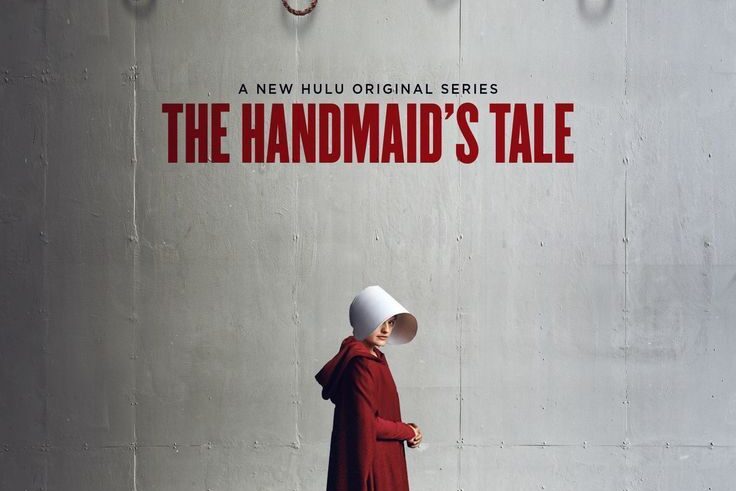
Adapted in 2017 from Margaret Atwood’s 1985 novel, The Handmaid’s Tale brought dystopian fears of authoritarianism and the control of women’s bodies to television just as global tensions around reproductive rights sharpened. Its depiction of forced surrogacy, strict patriarchy, and state surveillance echoed real-world events:–the revival of conservative gender norms and ongoing legal battles over abortion and bodily autonomy in the U.S. and beyond. Critics wrote that the show felt “more real than fiction”; a chilling reflection of growing fears.
9. Battlestar Galactica – “AI, Surveillance & Drone Wars”
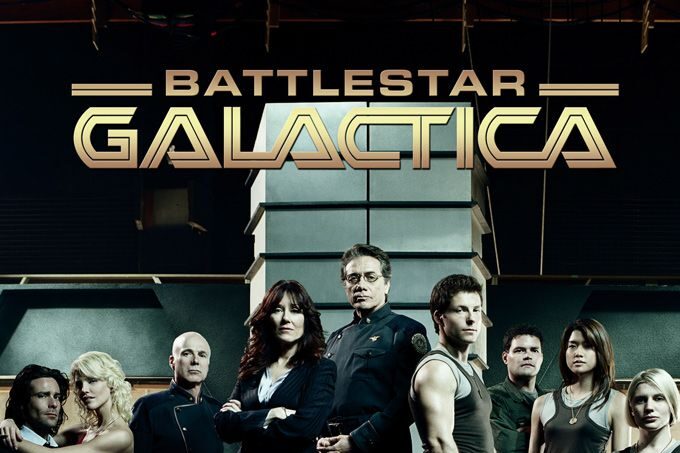
Battlestar Galactica (2004–2009) portrayed a future where advanced AI; known as Cylons; waged war on humans, employing sleeper agents, suicide bombings, mass surveillance, torture, and drone-like attacks. The show resonated deeply in a post-9/11 world, mirroring the War on Terror’s moral and strategic quandaries. Critics noted how it clashed ideals with brutal policy, questioning the cost of security at the expense of humanity. In scenes of human oppression under Cylon rule, it asked: “If you win the battle, but lose your soul, is it truly a victory?” – A question echoing today’s debates on drone strikes, surveillance overreach, and ethics in autonomous warfare. Transitioning from space epic to cautionary tale, Galactica foresaw how technology could both protect and erode our freedoms, grappling with themes of trust, identity, and the line between defense and dominance.
10. The Newsroom – “Media Distrust & Political Divide”
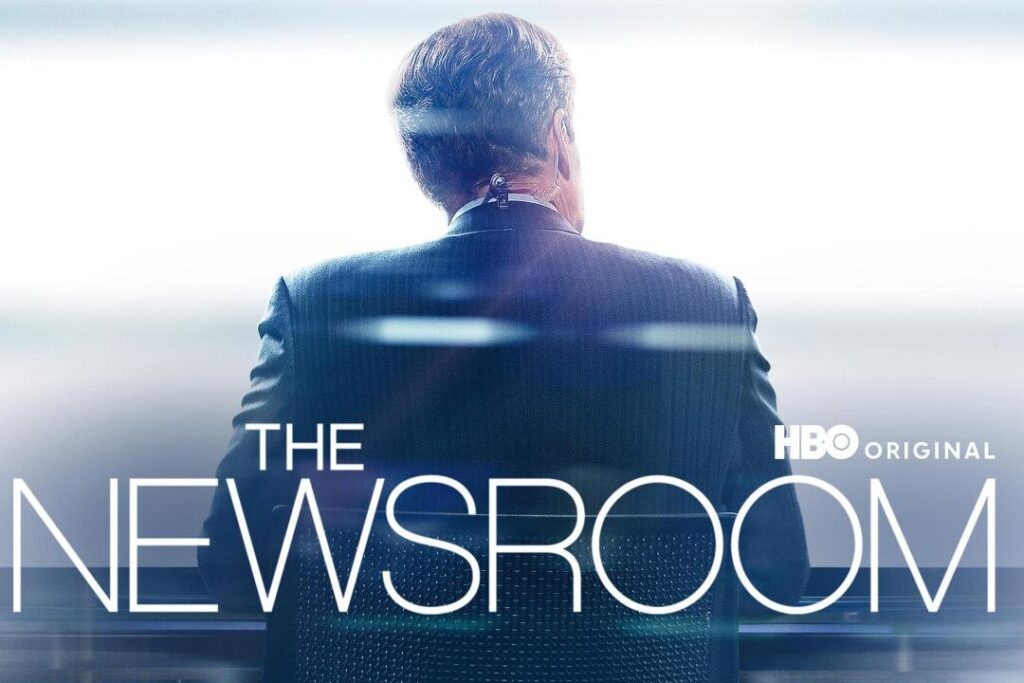
The Newsroom (2012–2014) dramatized real past events in its timeline; like the Deepwater Horizon spill and Osama Bin Laden raid; while projecting deeper cultural unrest: distrust in media, polarization, and the erosion of objective truth. The opening rant by anchor Will McAvoy on American mediocrity went viral, echoing today’s frustration with misinformation and political echo chambers. Its mission; “champion of facts and mortal enemy of innuendo”; became alarmingly resonant as social media and partisan outlets morphed public discourse. Though critics lambasted its idealism, journalists like Dan Rather defended it as “important television” supporting “the social value of truth”. In the end, The Newsroom itself became a foreshadowing of modern media distrust and the ongoing struggle to reclaim shared reality in a fractured age.
This story 10 Shows That Foreshadowed Major Political or Cultural Events was first published on Daily FETCH


